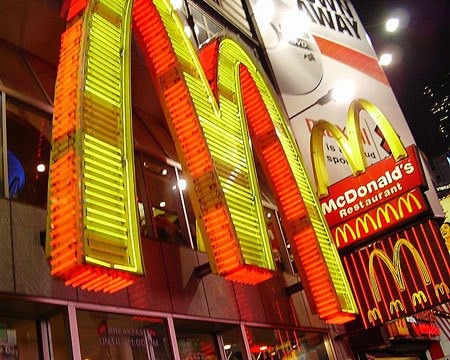Quick-Service Chains Drop Kids Meal Toys
Children won't be seeing toys with their kids meals at most quick-service restaurants in San Francisco starting Thursday.
McDonald's and Burger King said Wednesday they will stop including toys automatically in kids meals to comply with a new city ordinance that goes into effect Dec. 1.
Instead, both chains said toys will be sold separately for 10 cents with the purchase of a kids meal.
McDonald's officials said Wednesday the move is in response to the Healthy Meal Legislation in San Francisco, which requires that meals marketed specifically to children meet certain nutritional standards if they include a free toy. McDonald's has 19 locations in the Bay Area city.
McDonald's and other fast-food chains have been under fire for years for the use of toys and marketing to kids, which critics say lures children into making poor food choices.
The nation's No. 1 burger chain is battling a lawsuit in California filed by health advocates who contend McDonald's toy offer has contributed to growing obesity rates among children.
Earlier this year, McDonald's made changes to its Happy Meals with the goal of improving their nutritional profile.
The new version, which includes a smaller portion of fries, apple slices, and the option of milk, is being rolled out to the chain's 14,000 U.S. locations and is in place in states like California and New York, as well as major cities across the country. Officials say the roll out will be systemwide by March 2012.
While some variations of the new Happy Meals have fewer than 600 calories — meeting one component of the San Francisco ordinance — the kids meals still don't include a half-cup of fruit and a half-cup of vegetables, which also are required, said Danya Proud, a spokeswoman for McDonald's USA.
"We're including fruit, but it is about one-quarter cup," she said.
Proceeds from the sale of the toys in San Francisco will go toward the support of a Ronald McDonald House in San Francisco, where families can stay together while children are treated for cancer.
"We believe this is the best option for being in compliance with the law and with customers telling us what they want," Proud said. "For us, it's more about the broader changes being made to the Happy Meals overall."
To some, however, McDonald's is simply skirting the law.
Christine Chester, press secretary for the Boston-based group Corporate Accountability International, said in a statement that McDonald's is "using a charity that helps children get well to defend a practice that contributes to a range of diet-related conditions like diabetes.
"Currently, McDonald's uses its contributions to the charity to defend the hundreds of millions it spends marketing its junk food brand to kids each year," she wrote.
For Burger King, the ordinance also impacts the chain's new kids meal packaging rolled out earlier this year, which includes a new cardboard crown and interactive activities on the box.
Burger King also has been improving the nutrition content of its kids meal offerings in recent years with the addition of Apple Fries, fat-free milk, and lower-calorie options like oatmeal at breakfast.
Kristen Hauser, a spokeswoman for Burger King Corp., said the chain's 13 locations in San Francisco will serve the bundled kids meals in regular bags — not the crown box packaging.
If the toy is purchased for the recommended 10 cents, however, kids also will receive their meal in the crown box, Hauser said.
Other chains, such as San Diego-based Jack in the Box, dropped toys from kids meals systemwide earlier this year — although company officials said at the time that decision was not a result of the pending San Francisco legislation or pressure from health advocates.
— Lisa Jennings, NRN.com
